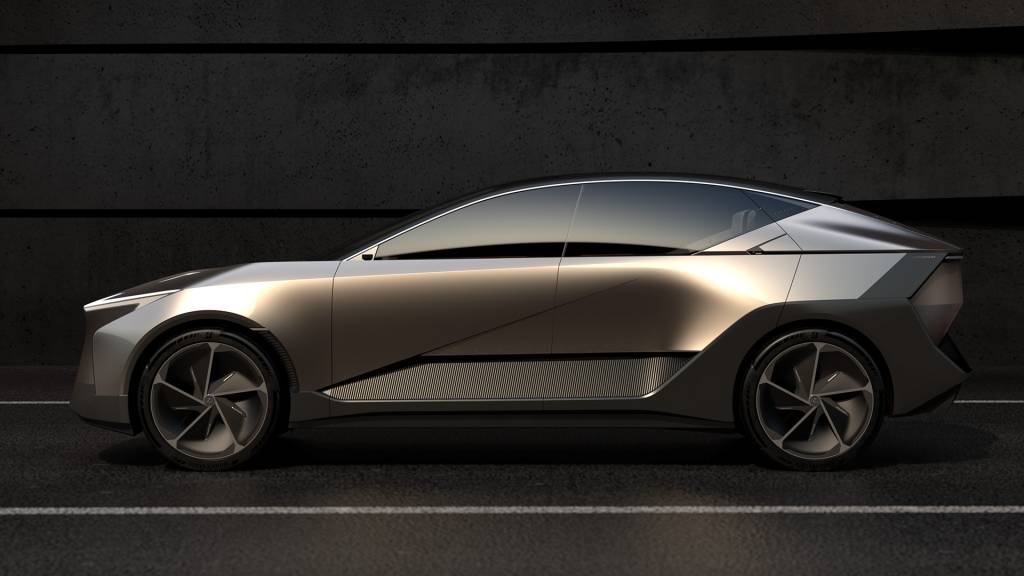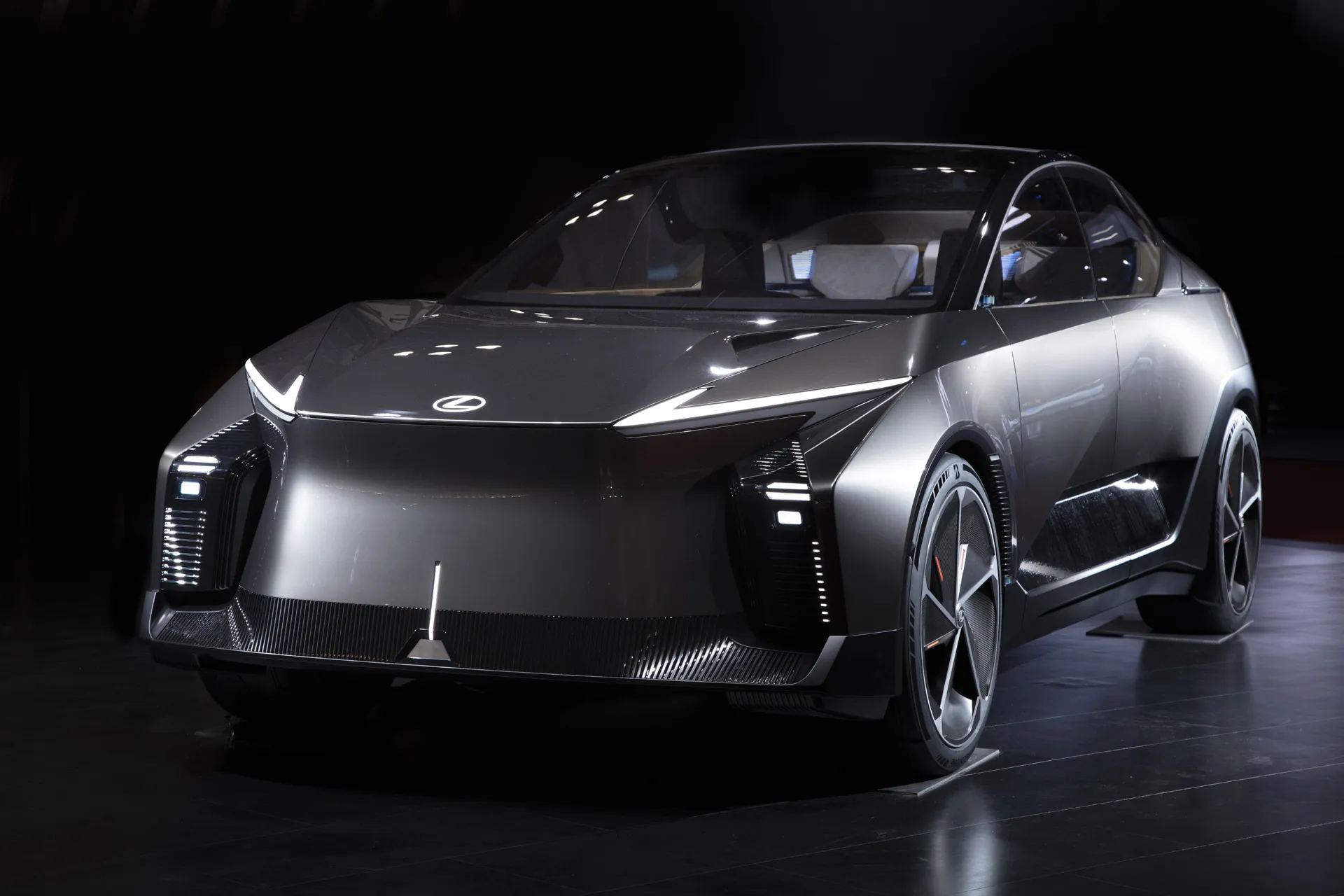Lexus used the 2023 Tokyo auto show to unveil a concept previewing its upcoming EV flagship.
Called the Lexus LF-ZL (for “Lexus Future Zero-emission Luxury”), the concept is an SUV measuring 208.6 inches long—about eight inches longer than the current LX SUV and two inches longer than the LS flagship sedan—and based on a dedicated EV platform to be shared with other future Lexus EVs.
Exterior styling that appears to be an evolution of what Lexus parent Toyota teased earlier this year is underpinned by a structure made from three large “gigacastings.” An engineering method advocated by Tesla, this replaces smaller welded components with large cast pieces, in this case forming the front, center, and rear of the chassis. The goal is to simplify production and increase structural rigidity, according to Lexus.
Lexus LF-ZL concept
The LF-ZL also features prismatic battery cells that will be used in future Lexus production EVs. The cells offer higher energy density than current cells, as well as physical dimensions that allow for thinner battery packs, Lexus claims. This gives designers greater freedom, can potentially improve aerodynamics by allowing for sleeker shapes, and lowers the center of gravity for improved handling, according to the automaker.
Toyota in September announced the rollout of new battery tech starting in 2026, in line with the planned launch of a lineup of next-generation EVs that should include a production version of the LF-ZL. The timeline starts with liquid-electrolyte chemistries, with solid-state batteries to be introduced starting in 2027 or 2028.
The LF-ZL also features Toyota’s next-generation operating system, dubbed Arene. It can pull data from onboard sensors and the surrounding environment, allowing the vehicle to, for example, generate directions in response to queries about points of interest. Press materials also mention “utilization of big data” to manage the charging process, hinting at some form of vehicle-to-grid (V2G) connectivity.

Lexus LF-ZL concept
Also unveiled at the Tokyo show was the Lexus LF-ZC concept, a sleek hatch that Lexus said will enter production in 2026, and sporting the steer-by-wire system the automaker has been working to perfect. Lexus didn’t discuss a specific timeline for the launch of the LF-ZL, however.
The next-generation EVs previewed by these two concepts look like a big step forward from the RZ crossover, the only Lexus EV currently sold in the U.S. based on the Toyota BZ4X, the RZ only achieves 220 miles of EPA range, with some versions offering even less. Lexus also sells an all-electric version of the smaller UX crossover in some markets outside the U.S.
Lexus plans to rapidly expand its EV portfolio, though. The automaker has set a goal of selling only zero-emission vehicles—including both battery-electric and hydrogen fuel-cell models—in the U.S., China, and Europe by 2030, and the rest of the world by 2035. The new EVs heralded by the LF-ZL concept will play a big role in achieving that goal.
Read the full article here




